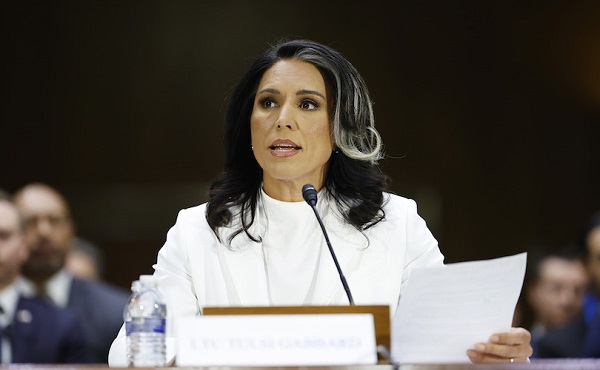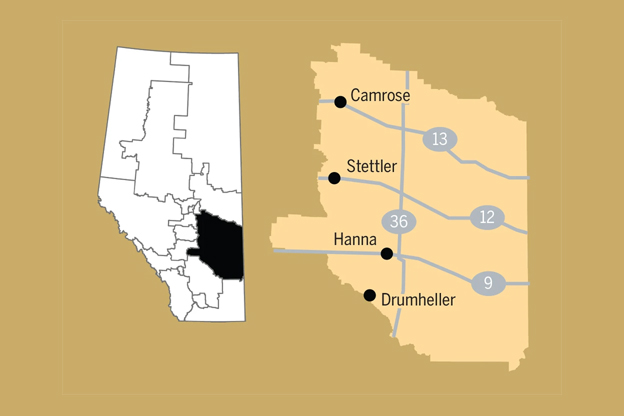Uncategorized
Nobel Peace Prize honours the fight against sexual violence

OSLO — The Nobel Peace Prize on Friday was awarded to a Congolese doctor and an Iraqi woman who was held captive by the Islamic State group for their work to highlight and eliminate the use of sexual violence as a weapon of war.
Dr. Denis Mukwege and Nadia Murad “have made a crucial contribution to focusing attention on, and combating, such war crimes,” the Norwegian Nobel Committee said in its announcement.
“Denis Mukwege is the helper who has devoted his life to defending these victims. Nadia Murad is the witness who tells of the abuses perpetrated against herself and others.”
Mukwege, 63, founded a hospital in eastern Congo’s Bukavu and has treated thousands of women, many of whom were victims of gang rape. Armed men tried to kill him in 2012, forcing him to temporarily leave the country.
“The importance of Dr. Mukwege’s enduring, dedicated and selfless efforts in this field cannot be overstated. He has repeatedly condemned impunity for mass rape and criticized the Congolese government and other countries for not doing enough to stop the use of sexual violence against women as a strategy and weapon of war,” the Nobel committee said in its citation Friday.
Eastern Congo has seen more than two decades of conflict among armed groups that either sought to unseat presidents or simply grab control of a piece of the country’s vast mineral wealth.
Murad is one of an estimated 3,000 Yazidi girls and women who were victims of rape and other abuses by IS militants. She managed to escape after three months and chose to speak about her experiences. At the age of 23, she was named the U.N.’s first Goodwill Ambassador for the Dignity of Survivors of Human Trafficking.
Her book, “The Last Girl,” tells of her captivity, the loss of her family and her eventual escape.
The Yazidis are an ancient religious minority, falsely branded as devil-worshippers by Sunni Muslim extremists. IS, adopting a radical interpretation of ancient Islamic texts, declared that Yazidi women and even young girls could be taken as slaves.
“We want to send a message that women who constitute half the population in those communities actually are used as weapons and that they need protection, and that the perpetrators have to be prosecuted and held responsible,” said Berit Reiss-Andersen, chairwoman of the Norwegian committee.
Congo’s government congratulated Mukwege while acknowledging that relations with him have been strained.
Government spokesman Lambert Mende told The Associated Press that Mukwege did “remarkable” work, though he said the laureate tended to politicize it. However, “we salute that a colleague is recognized,” he said.
Iraq celebrated the announcement, with state TV interrupting normal program to report Murad’s win.
Both honorees are the first from their countries to receive a Nobel Prize.
“I am proud to be Congolese,” said the country’s top opposition leader, Felix Tshisekedi, in a Twitter post. “Good done for others always ends up being rewarded.”
The award comes amid heightened attention to sexual abuse of women in the workplace and socially, broadly referred to as the “#MeToo” movement.
“MeToo and war crimes is not quite the same thing, but they do however have in common that it is important to see the suffering of women,” said Reiss-Andersen.
The 2018 prize is worth 9 million Swedish kronor ($1.01 million). Last year’s winner was the International Campaign to Abolish Nuclear Weapons.
In other Nobel prizes this year, the medicine prize went Monday to James Allison of the University of Texas M.D. Anderson Cancer Center and Tasuku Honjo of Kyoto University, whose discoveries helped cancer doctors fight many advanced-stage tumors and save an “untold” numbers of lives.
Scientists from the United States, Canada and France shared the physics prize Tuesday for revolutionizing the use of lasers in research.
On Wednesday, three researchers who “harnessed the power of evolution” to produce enzymes and antibodies that have led to a new
The winner of the Nobel Memorial Prize in Economic Sciences,
No Nobel literature prize will be awarded this year due to a sex abuse scandal at the Swedish Academy, which chooses the winner. The academy plans to announce both the 2018 and the 2019 winner next year — although the head of the Nobel Foundation has said the body must fix its tarnished reputation first.
The man at the
___
Heintz reported from Moscow. Cara Anna in Johannesburg, Dave Bryan in Cairo and Carley Petesch in Daka, Senegal, contributed.
Mark Lewis And Jim Heintz, The Associated Press
Uncategorized
Poilievre on 2025 Election Interference – Carney sill hasn’t fired Liberal MP in Chinese election interference scandal

From Conservative Party Communications
“Yes. He must be disqualified. I find it incredible that Mark Carney would allow someone to run for his party that called for a Canadian citizen to be handed over to a foreign government on a bounty, a foreign government that would almost certainly execute that Canadian citizen.
“Think about that for a second. We have a Liberal MP saying that a Canadian citizen should be handed over to a foreign dictatorship to get a bounty so that that citizen could be murdered. And Mark Carney says he should stay on as a candidate. What does that say about whether Mark Carney would protect Canadians?
“Mark Carney is deeply conflicted. Just in November, he went to Beijing and secured a quarter-billion-dollar loan for his company from a state-owned Chinese bank. He’s deeply compromised, and he will never stand up for Canada against any foreign regime. It is another reason why Mr. Carney must show us all his assets, all the money he owes, all the money that his companies owe to foreign hostile regimes. And this story might not be entirely the story of the bounty, and a Liberal MP calling for a Canadian to be handed over for execution to a foreign government might not be something that the everyday Canadian can relate to because it’s so outrageous. But I ask you this, if Mark Carney would allow his Liberal MP to make a comment like this, when would he ever protect Canada or Canadians against foreign hostility?
“He has never put Canada first, and that’s why we cannot have a fourth Liberal term. After the Lost Liberal Decade, our country is a playground for foreign interference. Our economy is weaker than ever before. Our people more divided. We need a change to put Canada first with a new government that will stand up for the security and economy of our citizens and take back control of our destiny. Let’s bring it home.”
Uncategorized
Canada Needs A Real Plan To Compete Globally

From the Frontier Centre for Public Policy
Ottawa’s ideological policies have left Canada vulnerable. Strategic action is needed now
As Canada navigates an increasingly complex geopolitical landscape, the next federal government must move beyond reflexive anti—Americanism regardless of its political leanings. Instead, Canada should prioritize national interests while avoiding unnecessary conflict and subservience.
The notion that Canada can stand alone is as misguided as the idea that it is only an economic appendage of the United States. Both perspectives have influenced policy in Ottawa at different times, leading to mistakes.
Rather than engaging in futile name-calling or trade disputes, Canada must take strategic steps to reinforce its autonomy. This approach requires a pragmatic view rooted in Realpolitik—recognizing global realities, mitigating risks, governing for the whole country, and seizing opportunities while abandoning failed ideologies.
However, if Washington continues to pursue protectionist measures, Canada must find effective ways to counteract the weakened position Ottawa has placed the country in over the past decade.
One key strategy is diversifying trade relationships, notably by expanding economic ties with emerging markets such as India and Southeast Asia. This will require repairing Canada’s strained relationship with India and regaining political respect in China.
Unlike past Liberal trade missions, which often prioritized ideological talking points over substance, Canada must negotiate deals that protect domestic industries rather than turning summits into platforms for moral posturing.
A more effective approach would be strengthening partnerships with countries that value Canadian resources instead of vilifying them under misguided environmental policies. Expand LNG exports to Europe and Asia and leverage Canada’s critical minerals sector to establish reciprocal supply chains with non-Western economies, reducing economic reliance on the U.S.
Decades of complacency have left Canada vulnerable to American influence over its resource sector. Foreign-funded environmental groups have weakened domestic energy production, handing U.S. industries a strategic advantage. Ottawa must counter this by ensuring Canadian energy is developed at home rather than allowing suppressed domestic production to benefit foreign competitors.
Likewise, a robust industrial policy—prioritizing mining, manufacturing, and agricultural resilience—could reduce dependence on U.S. and Chinese imports. This does not mean adopting European-style subsidies but rather eliminating excessive regulations that make Canadian businesses uncompetitive, including costly domestic carbon tariffs.
Another key vulnerability is Canada’s growing military dependence on the U.S. through NORAD and NATO. While alliances are essential, decades of underfunding and neglect have turned the Canadian Armed Forces into little more than a symbolic force. Canada must learn self-reliance and commit to serious investment in defence.
Increasing defence spending—not to meet NATO targets but to build deterrence—is essential. Ottawa must reform its outdated procurement processes and develop a domestic defence manufacturing base, reducing reliance on foreign arms deals.
Canada’s vast Arctic is also at risk. Without continued investment in northern sovereignty, Ottawa may find itself locked out of its own backyard by more assertive global powers.
For too long, Canada has relied on an economic model that prioritizes federal redistribution over wealth creation and productivity. A competitive tax regime—one that attracts investment instead of punishing success—is essential.
A capital gains tax hike might satisfy activists in Toronto, but it does little to attract investments and encourage economic growth. Likewise, Ottawa must abandon ideological green policies that threaten agri-food production, whether by overregulating farmers or ranchers. At the same time, it must address inefficiencies in supply management once and for all. Canada must be able to feed a growing world without unnecessary bureaucratic obstacles.
Ottawa must also create an environment where businesses can innovate and grow without excessive regulatory burdens. This includes eliminating interprovincial trade barriers that stifle commerce.
Similarly, Canada’s tech sector, long hindered by predatory regulations, should be freed from excessive government interference. Instead of suffocating innovation with compliance mandates, Ottawa should focus on deregulation while implementing stronger security measures for foreign tech firms operating in Canada.
Perhaps Ottawa’s greatest mistake is its knee-jerk reactions to American policies, made without a coherent long-term strategy. Performative trade disputes with Washington and symbolic grandstanding in multilateral organizations do little to advance Canada’s interests.
Instead of reacting emotionally, Canada must take proactive steps to secure its economic, resource, and defence future. That is the role of a responsible government.
History’s best strategists understood that one should never fight an opponent’s war but instead dictate the terms of engagement. Canada’s future does not depend on reacting to Washington’s policies—these are calculated strategies, not whims. Instead, Canada’s success will be determined by its ability to act in the interests of citizens in all regions of the country, and seeing the world as it is rather than how ideological narratives wish it to be.
Marco Navarro-Génie is the vice president of research at the Frontier Centre for Public Policy. With Barry Cooper, he is co-author of Canada’s COVID: The Story of a Pandemic Moral Panic (2023).
-

 COVID-192 days ago
COVID-192 days agoStudy finds nearly half of ‘COVID deaths’ had no link to virus
-

 International2 days ago
International2 days agoIce Surprises – Arctic and Antarctic Ice Sheets Are Stabilizing and Growing
-

 Alberta2 days ago
Alberta2 days agoCharges laid in record cocaine seizure
-

 2025 Federal Election2 days ago
2025 Federal Election2 days agoCarney says Liberals won’t make voting pact with NDP
-
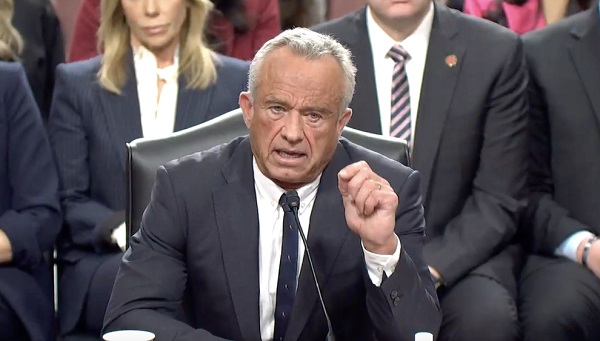
 Autism1 day ago
Autism1 day agoNIH, CMS partner on autism research
-
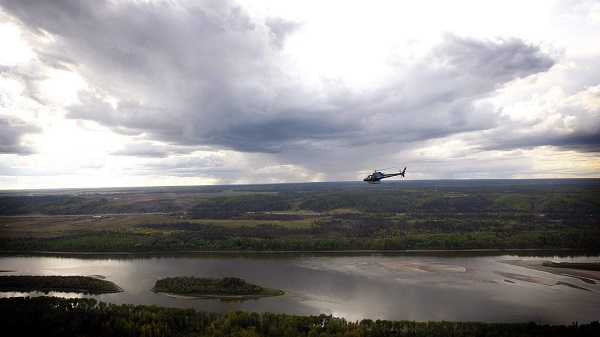
 Alberta2 days ago
Alberta2 days agoEnergy projects occupy less than three per cent of Alberta’s oil sands region, report says
-

 Energy2 days ago
Energy2 days agoOil tankers in Vancouver are loading plenty, but they can load even more
-
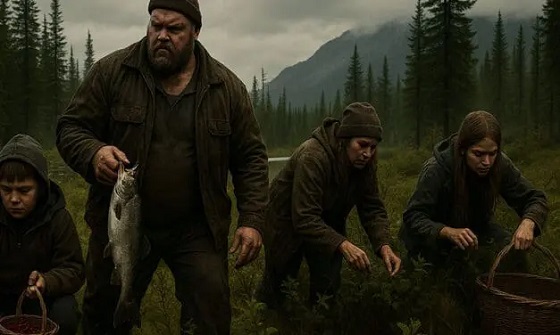
 Business21 hours ago
Business21 hours agoOttawa foresees a future of despair for Canadians. And shrugs
